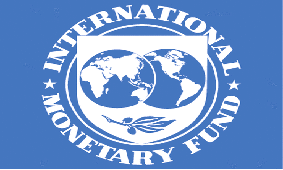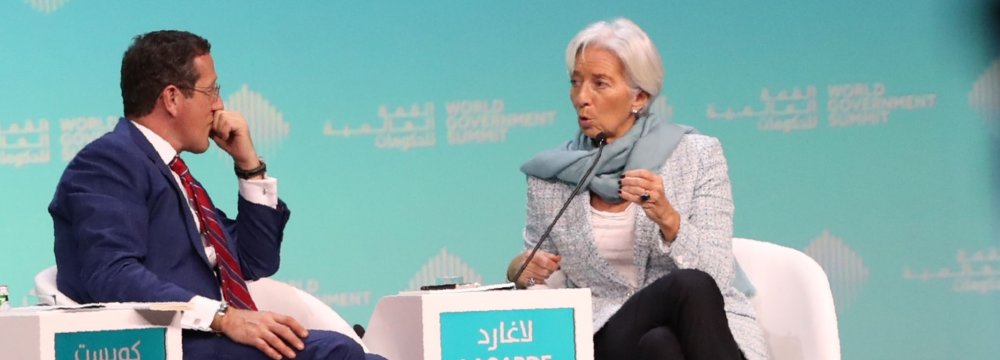
IMF’s Christine Lagarde: Oil Exporters Have Not Fully Recovered From 2014 Shock


"With revenues down, fiscal deficits are only slowly declining, despite significant reforms on both the spending and revenue sides, including the introduction of VAT and excise taxes," Christine Lagarde, told a conference in Dubai, CNBC reported.
"This has led to a sharp increase in public debt, from 13% of GDP in 2013 to 33% in 2018."
Lagarde said uncertainty in the growth outlook for oil exporters also reflected moves by countries to shift rapidly toward renewable energy over the next few decades, in line with the Paris climate change pact.
She said there was scope to improve fiscal frameworks in the Middle East with some of the weaknesses emanating from "short-termism and insufficient credibility."
Lagarde said governments in the region might be tempted to favor white elephant projects instead of investment in people and productive potential.
She said across the region, it is common for sovereign wealth funds to directly finance projects, bypassing the normal budget process, while state-owned enterprises in some countries had high levels of borrowing, outside the budget.
She said oil exporters could follow the example of other resource-rich countries such as Chile and Norway in using fiscal rules to protect priorities, such as social spending, from commodity price volatility.
Among oil importers in the Middle East region, growth had picked up, but it was still below the level before the global financial crisis, she said.
Speaking about the global economy, Lagarde said the IMF was not seeing a global recession on the horizon, but risks were rising for global growth due to trade tensions and tightening financial conditions.
The IMF's revised forecast sees the global economy growing by 3.5% this year, 0.2%age points below what it expected in October.


Newmont nets $100M payment related Akyem mine sale

First Quantum scores $1B streaming deal with Royal Gold

Caterpillar sees US tariff hit of up to $1.5 billion this year

Gold price rebounds nearly 2% on US payrolls data

Copper price collapses by 20% as US excludes refined metal from tariffs

St Augustine PFS confirms ‘world-class’ potential of Kingking project with $4.2B value

B2Gold gets Mali nod to start underground mining at Fekola

Goldman told clients to go long copper a day before price plunge

Copper price posts second weekly drop after Trump’s tariff surprise

Codelco seeks restart at Chilean copper mine after collapse

US slaps tariffs on 1-kg, 100-oz gold bars: Financial Times

BHP, Vale offer $1.4 billion settlement in UK lawsuit over Brazil dam disaster, FT reports

NextSource soars on Mitsubishi Chemical offtake deal

Copper price slips as unwinding of tariff trade boosts LME stockpiles

SAIL Bhilai Steel relies on Danieli proprietary technology to expand plate mill portfolio to higher steel grades

Alba Discloses its Financial Results for the Second Quarter and H1 of 2025

Australia weighs price floor for critical minerals, boosting rare earth miners

Australia pledges $87M to rescue Trafigura’s Nyrstar smelters in critical minerals push

Fresnillo lifts gold forecast on strong first-half surge

US slaps tariffs on 1-kg, 100-oz gold bars: Financial Times

BHP, Vale offer $1.4 billion settlement in UK lawsuit over Brazil dam disaster, FT reports

NextSource soars on Mitsubishi Chemical offtake deal

Copper price slips as unwinding of tariff trade boosts LME stockpiles

SAIL Bhilai Steel relies on Danieli proprietary technology to expand plate mill portfolio to higher steel grades

Alba Discloses its Financial Results for the Second Quarter and H1 of 2025

Australia weighs price floor for critical minerals, boosting rare earth miners

Australia pledges $87M to rescue Trafigura’s Nyrstar smelters in critical minerals push

Fresnillo lifts gold forecast on strong first-half surge














